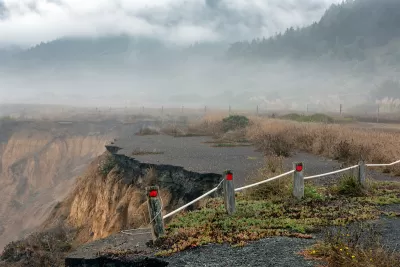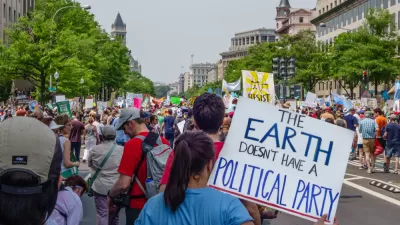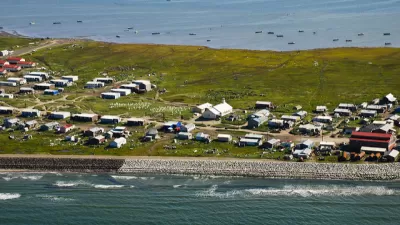How communities can manage climate-induced relocation successfully and equitably.

A new paper published in Nature Climate Change examines the financial, physical, and cultural outcomes of managed retreat through 14 examples from around the world.
As Ysabelle Kempe explains in Smart Cities Dive, the authors found that strong community engagement is key to successful ‘planned relocation’—the linguistic distinction matters, according to the study—which can occur when neighborhoods or towns find themselves at risk from coastal erosion, flooding, or other climate factors that make living in their current location unsustainable.
The study found that characteristics of the new location matter, but geographic distance may not be the most important factor in how easily people adjust: elevation change, social networks, and other factors can also impact how comfortable people feel in a new community.
The authors emphasize that “Planned relocation should never be the only option,” but that “It should be an open conversation where communities are informed about the range of options and then given their own time and space to come to conclusions about what makes sense.”
According to the study, “There's evidence to suggest that adaptation works best when it happens in a polycentric governance scheme involving many scales of government,” from national to local.
FULL STORY: What managed retreat around the world can teach US cities

Trump Administration Could Effectively End Housing Voucher Program
Federal officials are eyeing major cuts to the Section 8 program that helps millions of low-income households pay rent.

Planetizen Federal Action Tracker
A weekly monitor of how Trump’s orders and actions are impacting planners and planning in America.

The 120 Year Old Tiny Home Villages That Sheltered San Francisco’s Earthquake Refugees
More than a century ago, San Francisco mobilized to house thousands of residents displaced by the 1906 earthquake. Could their strategy offer a model for the present?

HSR Reaches Key Settlement in Northern California City
The state’s high-speed rail authority reached an agreement with Millbrae, a key city on the train’s proposed route to San Francisco.

Washington State Legislature Passes Parking Reform Bill
A bill that would limit parking requirements for new developments is headed to the governor’s desk.

Missouri Law Would Ban Protections for Housing Voucher Users
A state law seeks to overturn source-of-income discrimination bans passed by several Missouri cities.
Urban Design for Planners 1: Software Tools
This six-course series explores essential urban design concepts using open source software and equips planners with the tools they need to participate fully in the urban design process.
Planning for Universal Design
Learn the tools for implementing Universal Design in planning regulations.
Ada County Highway District
Clanton & Associates, Inc.
Jessamine County Fiscal Court
Institute for Housing and Urban Development Studies (IHS)
City of Grandview
Harvard GSD Executive Education
Toledo-Lucas County Plan Commissions
Salt Lake City
NYU Wagner Graduate School of Public Service





























